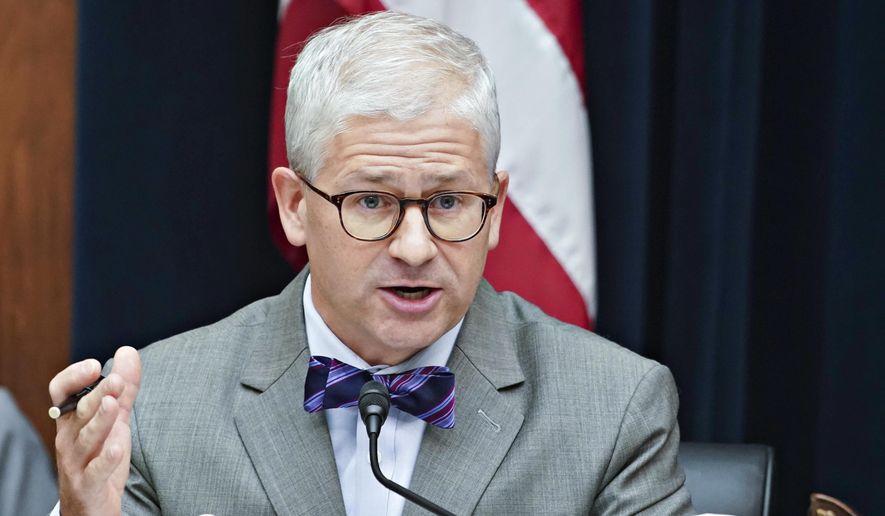Cracking down on U.S. investment in China is proving to be a tougher nut to crack than many Beijing hawks initially hoped, with American businesses unwilling to give up lucrative deals in a market with more than 1.4 billion people.
Even critics of China’s manipulative trade and economic practices say it is improbable to expect that U.S. companies will simply walk away without alternative markets for investment.
“China’s economy and lending to other countries are too large to be ignored, and there are no good alternatives to the existing international economic framework,” said Clete Willems, who served as deputy director of the national economic council under former President Donald Trump.
Business groups have given similar signals as a suspected Chinese spy balloon was caught traversing the U.S., including hovering near military installations in Montana. The U.S. Chamber of Commerce urged President Biden and Congress last week to strike the right balance to protect national security while not jeopardizing a trade relationship that “supports hundreds of thousands of American jobs.”
But Republicans won control of the House last year by promising to crack down on Beijing. Now in power, GOP lawmakers are proposing a series of punitive measures aimed at China.
Topping the list are new sanctions on companies linked to the Chinese military and the country’s ruling elite. They also offered up legislation requiring the Treasury Department to report on China’s investments within the U.S. and a bill banning China’s digital yuan from money-servicing businesses.
Some of those measures have drawn bipartisan support but could face obstacles in the narrowly divided Congress. Regardless, business and trade experts say the impact of such maneuvers would be limited in curbing U.S. investment in China.
That could drive a wedge between the GOP and its traditional pro-business base.
China, which has a gross domestic product of $17.7 trillion, is the second largest economy in the world behind the U.S. With a population of more than 1.4 billion people, it provides a lucrative market for American companies looking to hawk their goods and services. Simultaneously, China’s lax labor and environmental regulations and lucrative government subsidies make it a profitable location for businesses.
Mr. Willems, a partner at the lobbying firm Akin Gump, told the House Financial Services Committee on Tuesday that punitive measures against investment in China would need to be pursued with new trade deals with other countries to have a real impact.
“Restarting negotiations with the United Kingdom, which also has a strong financial services sector, and Kenya should be no-brainers,” he said. “Beyond that, we need to be bold if we want to provide a meaningful supply chain alternative to China.”
One alternative for deterring U.S. investment from China could be to forge stronger trade relationships with India and other Asian countries. That idea was at the root of President Obama’s Trans-Pacific Partnership, which sought to create a trade network in Asia that could rival China’s allure for U.S. businesses.
“Today we have trade deals with 20 countries, and it has been 10 years since we’ve added a single new partner to that list,” said Suzanne Clark, the president of the U.S. Chamber of Commerce. “Meanwhile, other countries have inked 100 new trade deals without us.”
Expanding free trade deals, while simultaneously cracking down on China’s trade practices, might not mesh well with the new direction of the GOP as outlined by Mr. Trump.
The former president won a large portion of blue-collar working voters in his successful 2016 and 2020 White House campaigns by denouncing free trade, long favored by mainstream Republicans.
“We turned the page on decades of globalist sellouts and one-sided trade deals, lifted millions out of poverty, and together, we built the greatest economy in the history of the world,” Mr. Trump said last year when announcing his 2024 presidential bid. “And we will do it again.”
House Republicans, though, seem to have a more nuanced message. Lawmakers on the House Financial Services Committee said they favored cracking down on China, but would prioritize doing so in a way that does not compromise free market principles.
“We need to carefully evaluate if a policy proposal could jeopardize America’s ability to innovate, grow, and allocate capital, or if it would cause allies to question our commitment to free people and free markets,” said Rep. Patrick McHenry, a North Carolina Republican who chairs the panel. “To beat China, the U.S. should not become China.”
• Haris Alic can be reached at halic@washingtontimes.com.




Please read our comment policy before commenting.